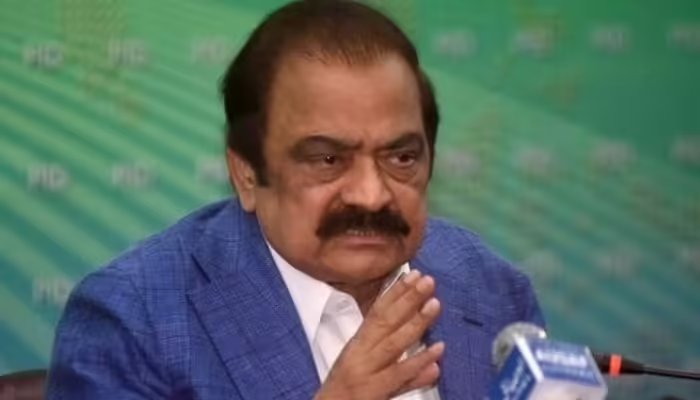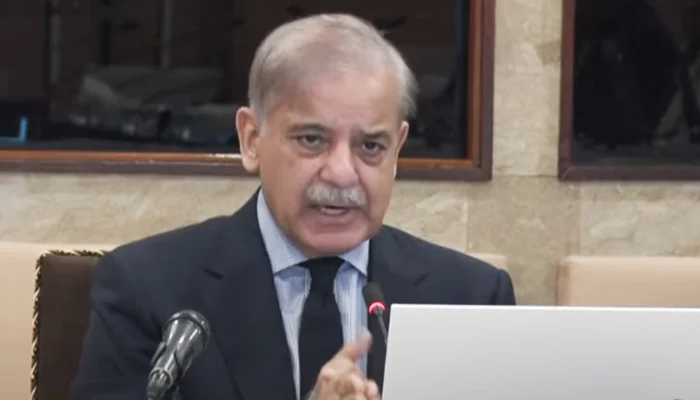Pakistan’s political landscape has witnessed significant tension in recent days, particularly surrounding the proposed constitutional amendments. Rana Sanaullah, a senior leader of the Pakistan Muslim League-N (PML-N), has publicly criticized the government’s advisory team for its failure to reach an understanding with Maulana Fazlur Rehman, leader of the Jamiat Ulema-e-Islam-F (JUI-F). The failure of this negotiation resulted in embarrassment for the government and the premature exposure of a highly sensitive constitutional package.
The Meeting that Raised Concerns
Speaking on Geo News’ program hosted by Shahzeb Khanzada, Rana Sanaullah expressed his concerns about the lack of coordination and preparation by the government’s advisory team. The PML-N leader explained that when his party initially met with Maulana Fazlur Rehman, they believed that the advisory team had already settled the matter. However, as discussions progressed, it became evident that the situation was far from resolved.
Rana Sanaullah stated that he had consistently warned that the necessary numbers were not in place to move forward with the constitutional amendments. His cautionary stance was seemingly ignored, leading to a failed effort to secure Maulana Fazlur Rehman’s support.
The Role of the Advisory Team
Two key figures, Mohsin Naqvi and Azam Nazir Tarar, were assigned the critical responsibility of negotiating with Maulana Fazlur Rehman on behalf of the government. Their primary goal was to bring him on board with the proposed constitutional amendments. However, according to Sanaullah, the team’s political inexperience and mishandling of the matter caused the situation to escalate rather than resolve. The inability to keep the issue discreet led to premature exposure, damaging the government’s position.
The role of Maulana Fazlur Rehman was central to the success of the constitutional amendment process. His opposition significantly contributed to the debacle, leaving the government scrambling to manage the fallout.
Intervention from Senior Leadership
As tensions mounted, the situation called for intervention from senior government figures. Ishaq Dar, the country’s finance minister, attempted to mediate between the government and Maulana Fazlur Rehman. Even Prime Minister Shehbaz Sharif personally visited Maulana at his residence in an effort to convince him to support the amendment package.
Bilawal Bhutto Zardari, chairman of the Pakistan Peoples Party (PPP), also stepped in, meeting with Maulana to negotiate and resolve the deadlock. Despite these high-level efforts, no progress was made, and the government continued to face an impasse.
The situation reflects the significant influence that Maulana Fazlur Rehman holds in Pakistan’s political landscape. His opposition to the constitutional amendments was not merely a political disagreement but a reflection of his broader concerns about the government’s policies and its handling of the legislative process.
Mismanagement and Embarrassment
The government’s failure to manage the process properly led to severe embarrassment, particularly for PML-N. The proposed constitutional amendment package, which included provisions related to the tenure of judges and the establishment of a constitutional court, was initially set to be tabled last Wednesday. However, due to insufficient quorum, the package could not move forward as planned.
Further exacerbating the issue was the premature disclosure of the constitutional amendment plan. Typically, such legislative efforts are kept under wraps until all the necessary negotiations and agreements are finalized. In this case, the failure to secure Maulana Fazlur Rehman’s support before calling meetings of the National Assembly and the Senate was seen as a critical misstep.
Official sources have highlighted that the government’s decision to proceed without securing key support demonstrated poor political judgment. The lack of coordination between the government’s advisory team and the opposition led to a situation where the meetings were called without any meaningful deal in place.
Maulana Fazlur Rehman’s Stance and Future Consultations
Maulana Fazlur Rehman’s opposition to the constitutional amendments was a clear signal that the government needed to reassess its approach. His concerns were not limited to the specifics of the amendment package but also reflected broader reservations about the government’s policies and decision-making process.
According to Rana Sanaullah, the consultation process will now extend into next week, with a focus on addressing Maulana’s concerns and securing the necessary support to move forward. Whether the government can resolve these issues and regain the political capital needed to pass the constitutional amendments remains to be seen.
The failure to convince Maulana Fazlur Rehman has exposed significant weaknesses in the government’s political strategy. The mishandling of the constitutional amendment process has not only embarrassed the ruling coalition but also demonstrated the challenges of navigating Pakistan’s complex political landscape. Moving forward, the government will need to engage in more effective consultation, build stronger alliances, and avoid the kind of missteps that have plagued its efforts thus far.
The next few days will be critical as the government seeks to repair the damage and salvage its legislative agenda. However, with Maulana Fazlur Rehman holding firm in his stance, the road ahead is likely to be fraught with challenges.



